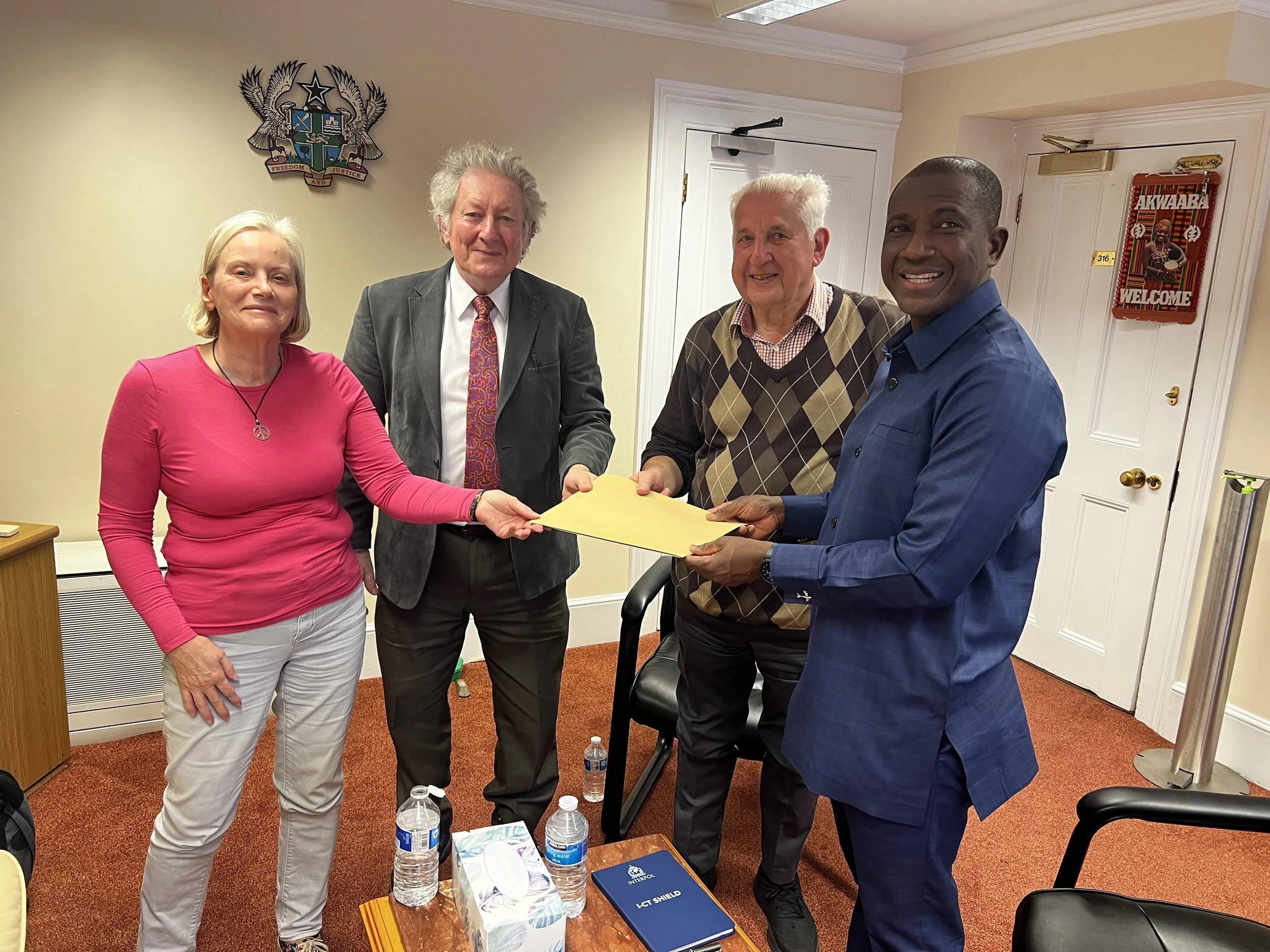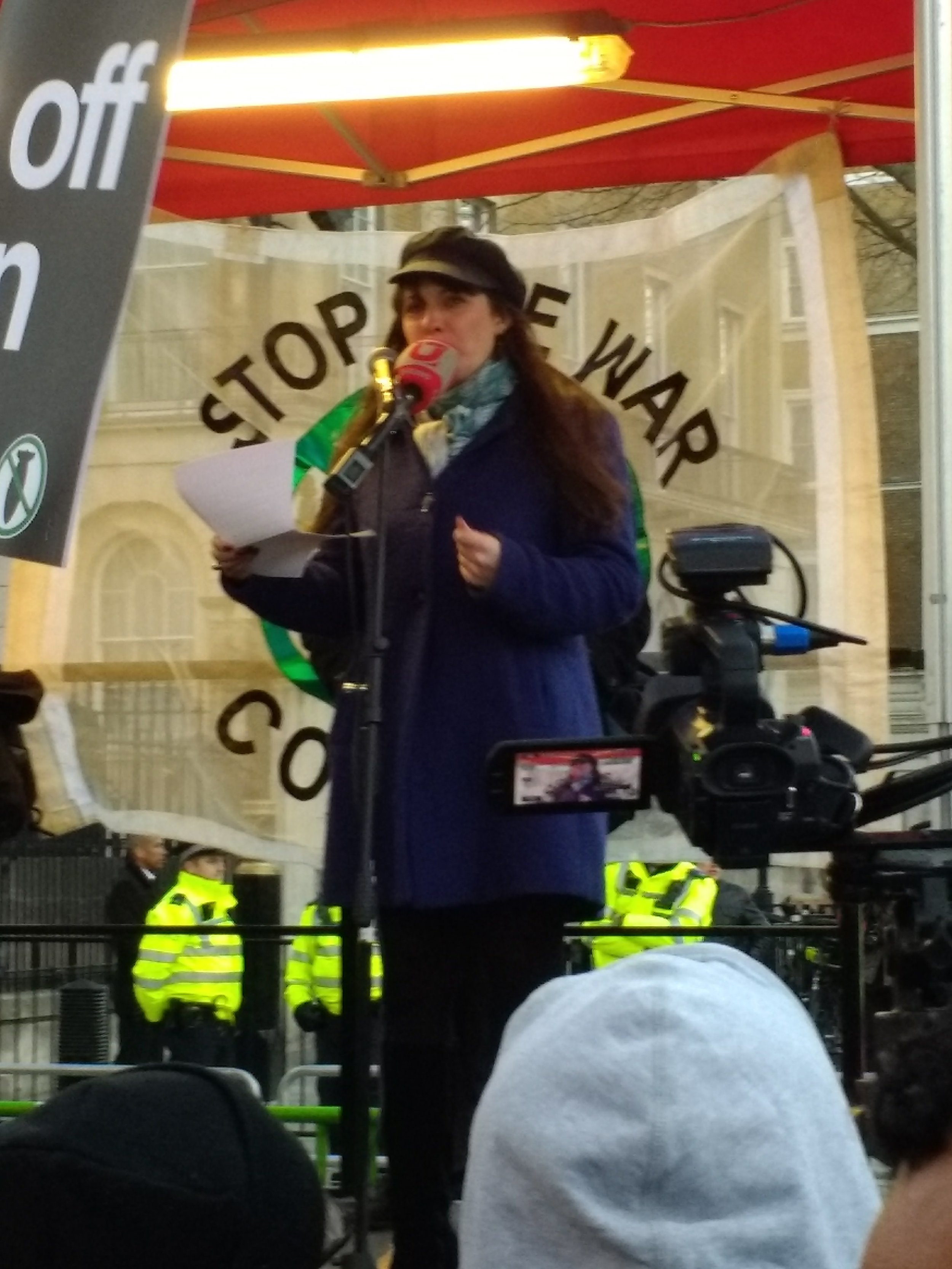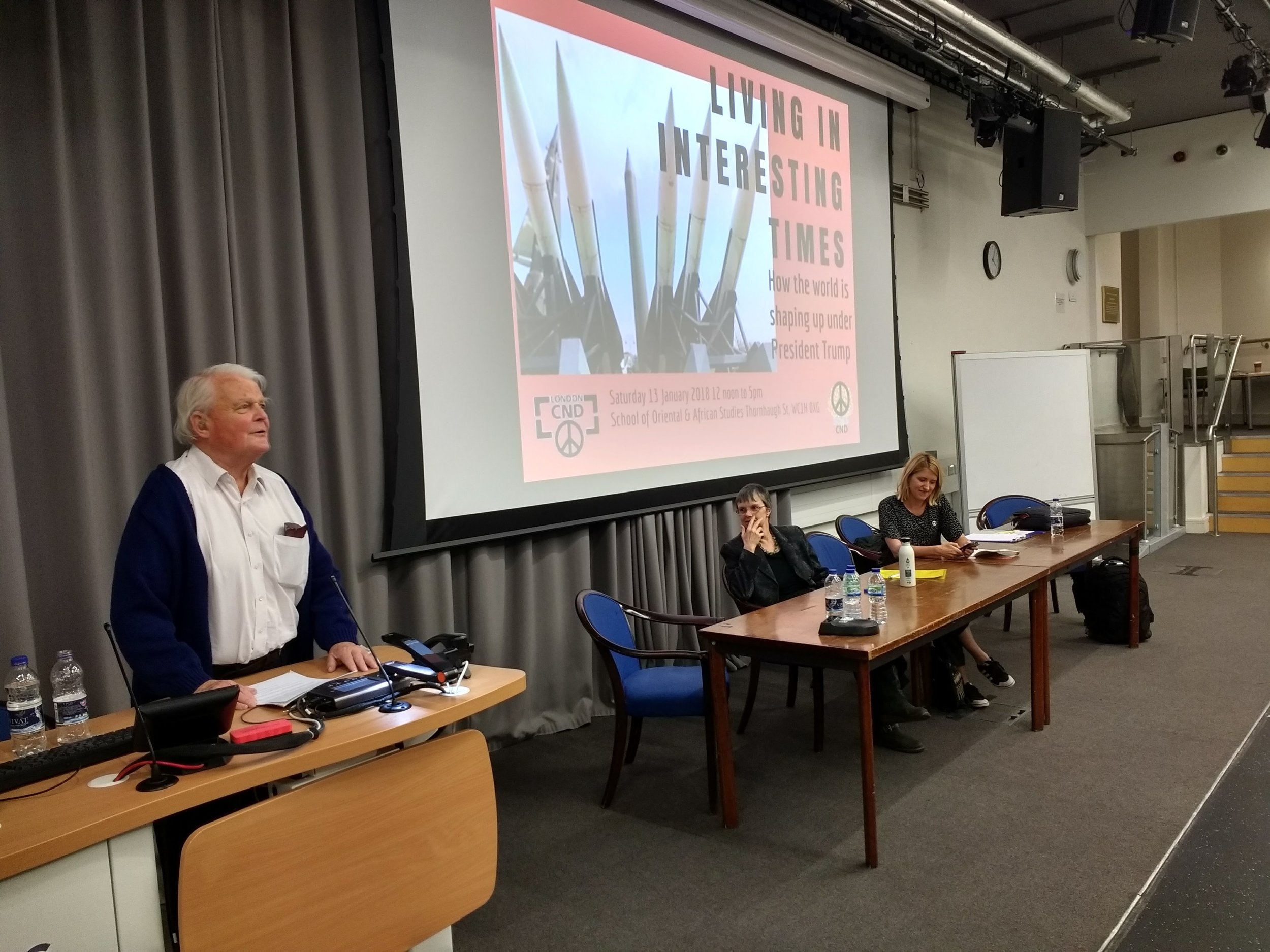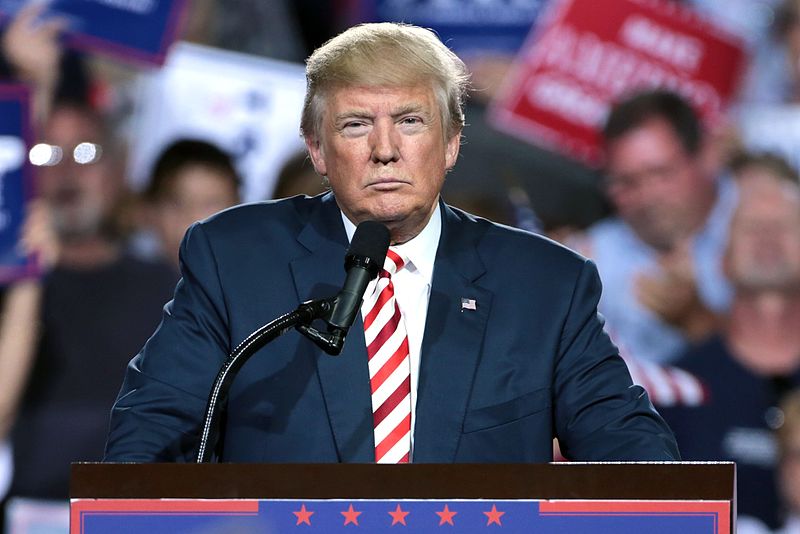This article originally appeared in the Morning Star
Shifts in US foreign policy are coming thick and fast as President Donald Trump begins his second year in office. We know now what we didn’t know when he was inaugurated this time last year — resistance to Trump is growing internationally and within the US.
One close-to-home illustration is Trump’s decision to withdraw from opening the new US embassy in London next month.
Opposition to a Trump visit runs through the British political establishment and is visible in Parliament. It reflects the strength of public feeling and is a victory for all of us who’ve campaigned against his visit.
Many and diverse voices were raised at the UN against Trump’s announcement of his intention to move the US embassy in Israel from Tel Aviv to Jerusalem, including the British government and other US allies.
As the Palestine Solidarity Campaign has pointed out, this “shows flagrant disregard for international law, Palestinian rights and international opinion” and will lead to greater tensions in the Middle East.
Trump still threatens to destabilise the Iran nuclear agreement by imposing unilateral sanctions on Iran. Lifting nuclear sanctions was at the heart of the Joint Comprehensive Plan of Action (JCPOA) agreed by the UN security council’s five permanent members and the EU in July 2015, but the EU, the US secretaries of state and defence and Trump’s national security advisers are all speaking out again such a move.
Trump’s attempt to recover from the failure of US policy in the Middle East by calling for sanctions against Syria has also been denounced and opposition to the activities of the biggest US regional ally, Saudi Arabia, is growing fast as the extent of the humanitarian disaster resulting from its war on Yemen becomes known.
Perhaps most interesting of all are recent developments on the Korean Peninsula after a year of growing tensions between the US and the Democratic People’s Republic of Korea.
Rhetorical exchanges about nuclear buttons notwithstanding — they’re more suited to the playground than international diplomacy — Trump’s apparent eagerness for a military solution is floundering.
Despite the client-state status of South Korea, President Moon Jae In has reopened the “sunshine” policy towards the northern neighbour which he promised during his election campaign last spring.
The crisis has already begun to destabilise the region. Witness, for example, the moves by President Shinzo Abe to break Article 9 of Japan’s post-war constitution which restricts its military activities.
Experts and activists alike understand that negotiations are the only safe way to resolve the biggest threat of nuclear confrontation since the Cuban missile crisis. Far from bringing North Korea into line, as Trump claims, his rhetorical belligerence has made talks less not more likely.
Many agree, including within the US administration, that a freeze-for-freeze agreement and the reopening of six-party talks is the way forward. The tragedy of 2017 has been to watch the possibility of a political solution recede with every tweet.
Most of these issues, and more, are the focus of discussions at this afternoon’s conference at London University’s School of Oriental and African Studies, jointly called by London Campaign for Nuclear Disarmament and backed by SOAS CND, Living in Interesting times: How the World’s Shaping up under President Trump, is a timely opportunity to assess the state of international politics at the outset of the new year.
There’s an exciting line-up of speakers, starting with a live link-up with Brian Becker in Washington DC. Becker is the national coordinator of the US Answer Coalition and co-host with John Kiriakou the CIA analyst turned whistle-blower, of the Sputnik Radio’s Loud and Clear show.
Becker will be looking at where President Trump’s foreign policy is headed and how his fellow citizens view his presidency.
He’s followed by a platform that focuses on nuclear challenges. Costa Rican ambassador Jose Enrique Castillo Barrantes will assess progress of the UN Treaty on the Prohibition of Nuclear Weapons which opened for signatures last September.
He’s joined by Jim Hoare, Associate Fellow of Chatham House and former charge d’affaires (from 2001-2002) at the British embassy in Pyongyang, North Korea, who will provide an expert view of the crisis.
Catherine West, Labour MP for Hornsey and Wood Green since May 2015 and a staunch opponent of Trident, completes the trio of speakers. West will share an insider analysis of how parliament sees Trump.
Our second plenary focuses on the Middle East and Arabian Peninsula, with Sami Ramadani, a spokesperson for Iraqi Democats and a Stop the War Coalition (StWC) steering committee member. He’ll be joined by Kim Sharif, a lawyer and director of Human Rights for Yemen.
The closing session of conference brings discussion back to Britain. Speakers in the Action for Change session will look at how the anti-nuclear and anti-war movement is shaping responding to the challenges of the new US presidency.
CND vice president Bruce Kent will be joined by StWC chair Murad Qureshi, Momentum rep and Young Labour activist Huda Elmi and Green Party MEP for south-west England, Molly Scott Cato.
We hope some readers will be joining us for what promises to be a great day of debates where plenty of time has been allocated for audience contributions.



















